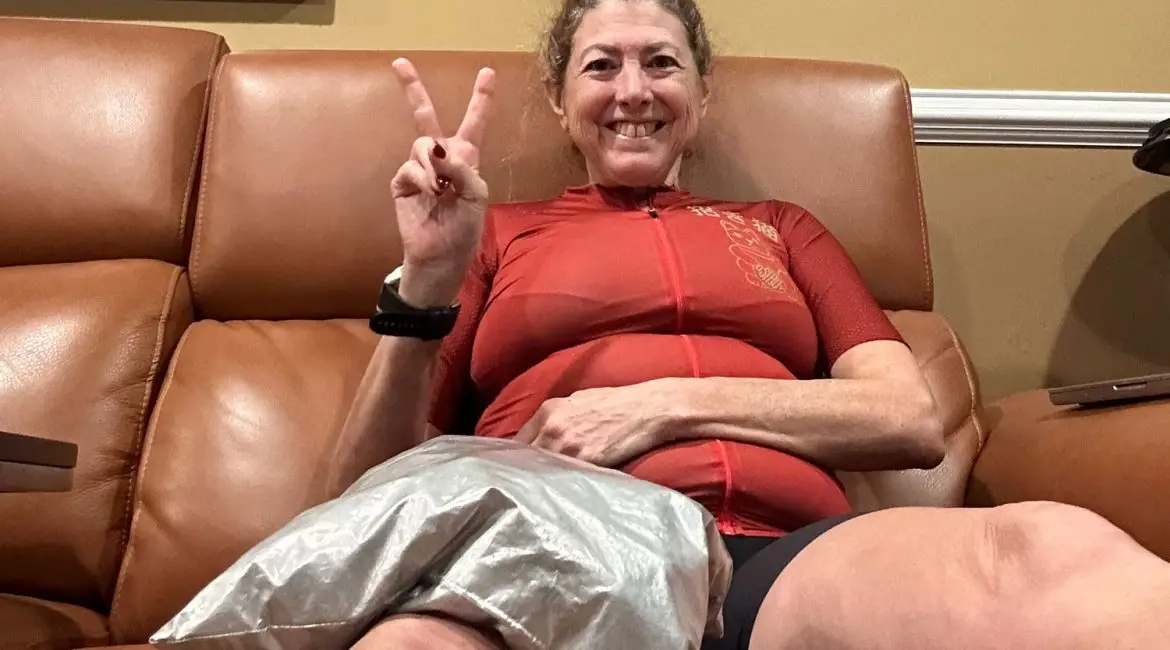Nine weeks ago, I underwent MISHA surgery, which stands for Medial Implantable Shock Absorber, designed to alleviate knee pain from osteoarthritis. The journey has been a rollercoaster, filled with challenges and revelations.
The Initial Struggles
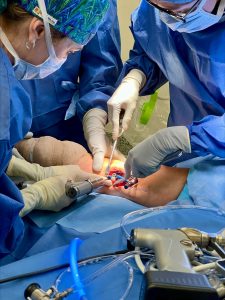
The first few weeks after surgery were difficult. Sleeping was a major challenge. I couldn’t rest on the leg that had the implant without pain waking me multiple times a night. Those early days felt endless, and the pain was at its worst. Simple tasks, like walking, felt daunting, and I often wondered how I would push through.
However, in the past few days, there’s been a shift. Sleeping has become easier. The pain that once jolted me awake has subsided, allowing me to rest more comfortably. Walking is also becoming less of a chore. While I still feel discomfort after long days on my feet, it’s nothing compared to the agony of those first two weeks.
Progress in Physical Therapy
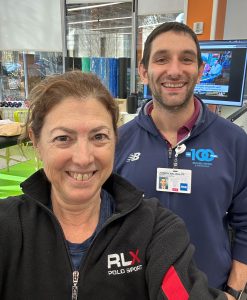
Physical therapy has been my saving grace. I’ve been working with Joseph at HSS in Uniondale, and he’s done an excellent job guiding my recovery. Every session builds me up, both physically and mentally. But it’s not PT alone. I’ve been diligent about doing the exercises and then some every day, no matter what.
I’ve recently progressed to squats and leg presses, which feel like milestones. Regaining strength in my legs is empowering—it feels like reclaiming a part of myself that I thought I had lost. These exercises represent more than physical progress; they symbolize hope that I’m moving toward a better, stronger me.
Pool and Bike Progress

I’ve been going to the pool almost three times a week and the other day I was able to finally swim a mile. As for the bike, I’ve been on the trainer about three days a week and starting to feel progress. I’ve gotten up to 45 minutes and feeling strong.
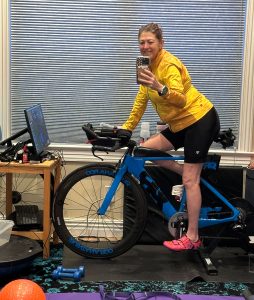
A Shocking Discovery
Just as I began to feel like I was turning a corner, an unexpected and unsettling development emerged. At my six-week check-up, I learned that someone else in my surgeon’s practice had to have their MISHA device removed. This sparked further investigation, leading me to contact Moximed, the company behind the implant.
What I discovered left me reeling. Moximed revealed that after the clinical trials, more than 100 implants, including mine, had manufacturing defects. The newer devices were not made to the same specifications as the trial versions. According to the FDA’s findings, though the device was intact and operational at the time of removal, subsequent analysis showed it lacked the durability initially promised.
Hearing this threw me into a spiral of anxiety. If my device fails, it can’t be replaced. Instead, I’ll need a partial knee replacement. The thought of undergoing another surgery—and the limitations it might impose—has been overwhelming. While I initially envisioned 10 years with this implant, I now wonder if I’ll be fortunate to get even five.
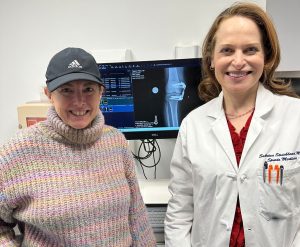
Facing the Future
This uncertainty has forced me to reevaluate my goals. I had the MISHA implant specifically to return to running, something integral to my identity as an endurance athlete and triathlete. But now I have to ask myself hard questions. Should I limit my runs to shorter distances to prolong the life of the implant? How much can I push myself before I risk doing more harm than good?

These decisions weigh heavily on me. Running isn’t just a hobby—it’s a part of who I am. The thought of giving that up feels devastating.
Staying Positive

Despite everything, I’m trying to focus on the positives. I’m making real progress in therapy, building strength and confidence with every session. I’m grateful for the support of my surgeon and the team at HSS, who are helping me take each step forward.
While this experience has been filled with setbacks, I’m determined to cling to hope. I’m praying for the best and reminding myself that every challenge is an opportunity to learn and grow. Whether I get five years or more out of this implant, I’m resolved to make the most of it.
Recovery is a complicated process, both physically and mentally, and this is just one chapter in my story. For now, I’ll focus on what I can control—taking small steps, staying active, and keeping faith that the future will bring new possibilities.
If you’ve been through something similar or are navigating your own recovery, know that you’re not alone. There’s strength in sharing our journeys and uplifting one another along the way.

